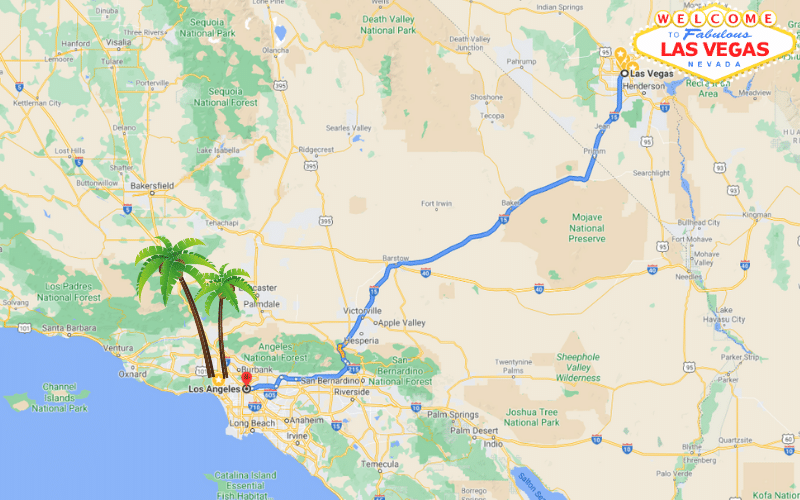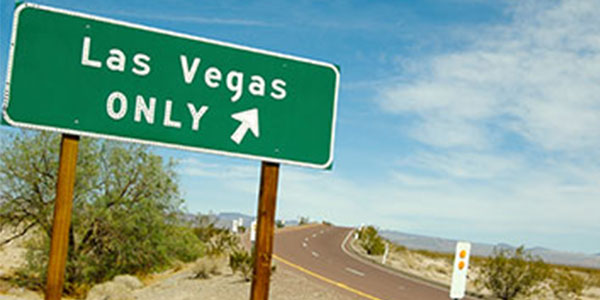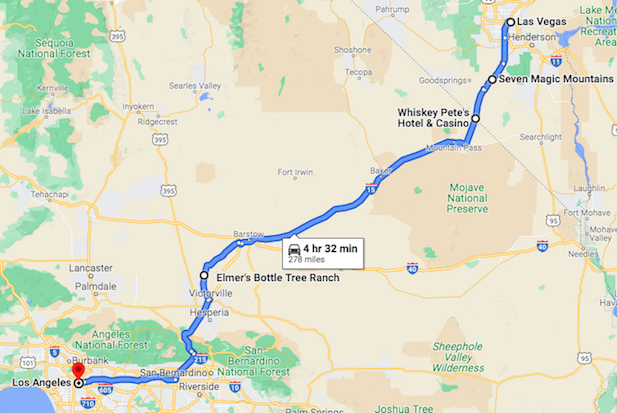How Long Would It Take To Drive To Las Vegas

Millions are contemplating a road trip to the glittering oasis of Las Vegas, but the crucial question remains: how long will it actually take to get there? Traffic conditions, route selection, and the ever-present need for pit stops can dramatically alter your journey.
This article cuts through the uncertainty, providing a clear, concise estimate of driving times to Las Vegas from major US cities, considering real-world factors. We’ll arm you with the information needed to plan your trip effectively and avoid unexpected delays.
Los Angeles to Las Vegas: A Tale of Two Drives
Driving from Los Angeles to Las Vegas is the most common route. The distance is roughly 270 miles.
Under optimal conditions, the drive can be completed in around 4 to 4.5 hours. However, "optimal conditions" are a rare occurrence.
Expect significantly longer travel times during peak hours, weekends, and holidays. Heavy traffic on Interstate 15 can easily add 2-3 hours to your trip.
Google Maps consistently reports increased travel times, especially Fridays and Sundays.
San Francisco to Las Vegas: The Northern Route
The journey from San Francisco to Las Vegas covers a greater distance, approximately 560 miles. This translates to a much longer drive.
Without accounting for stops or significant delays, the drive typically takes between 9 to 10 hours. Factoring in breaks and potential traffic in urban areas, drivers should plan for at least 11 to 12 hours.
Consider that driving through California's Central Valley can be tiring, and delays around Bakersfield are common.
Phoenix to Las Vegas: A Desert Dash
Phoenix, Arizona, sits approximately 290 miles southeast of Las Vegas. This positions it for a shorter but still demanding desert drive.
Assuming ideal conditions, the trip clocks in around 4.5 to 5 hours. Extreme heat during the summer months necessitates frequent breaks to prevent overheating and driver fatigue.
Be wary of potential delays near the Hoover Dam. The famous landmark can cause traffic congestion.
Salt Lake City to Las Vegas: The Mountain Pass
From Salt Lake City, Utah, the drive to Las Vegas spans roughly 420 miles. Expect a varied landscape.
The journey typically takes around 6.5 to 7.5 hours, weather permitting. Winter conditions, particularly snow and ice in the mountain passes, can drastically increase travel time and necessitate the use of snow chains.
Checking weather forecasts and road conditions before departure is critical for drivers on this route.
Denver to Las Vegas: A Cross-State Trek
The drive from Denver, Colorado, represents a significant cross-state journey. The distance is around 750 miles.
Drivers should realistically budget 11 to 13 hours for this trip. This factors in fuel stops, meals, and potential delays in mountain regions.
Altitude sickness can be a concern for some drivers, so acclimatization and careful planning are advised. Breaks are imperative.
Factors Affecting Driving Time
Numerous factors can impact the duration of your drive to Las Vegas. Traffic density is perhaps the most significant.
Construction zones, accidents, and special events can all cause unexpected delays. Time of day and day of the week also play a crucial role.
Holiday weekends, in particular, are notorious for congested highways leading into and out of Las Vegas.
Driver behavior and vehicle condition are equally important. Maintaining a safe speed, avoiding aggressive driving, and ensuring your vehicle is in good working order are all critical.
Regular maintenance, including checking tire pressure, fluid levels, and brakes, can prevent breakdowns and minimize potential delays.
Essential Planning Tips
Before embarking on your Las Vegas road trip, careful planning is essential. Use real-time traffic apps such as Google Maps or Waze to monitor traffic conditions and identify potential alternative routes.
Plan your stops in advance. Identify rest areas, gas stations, and restaurants along your route to avoid wasting time searching for amenities.
Pack essential supplies, including water, snacks, a first-aid kit, and a mobile phone charger. Be prepared for unexpected delays.
Allow ample time for your journey. Avoid rushing and prioritize safety over speed. Remember, arriving safely is far more important than arriving on time.
Ongoing Developments
State transportation departments are continuously working on infrastructure improvements that could potentially impact driving times to Las Vegas. Keep an eye on official DOT websites for project updates.
Monitor traffic news closer to your travel date. This will provide the most accurate and up-to-date information.
By staying informed and planning accordingly, you can minimize potential delays and enjoy a smooth and stress-free road trip to the Entertainment Capital of the World.


















